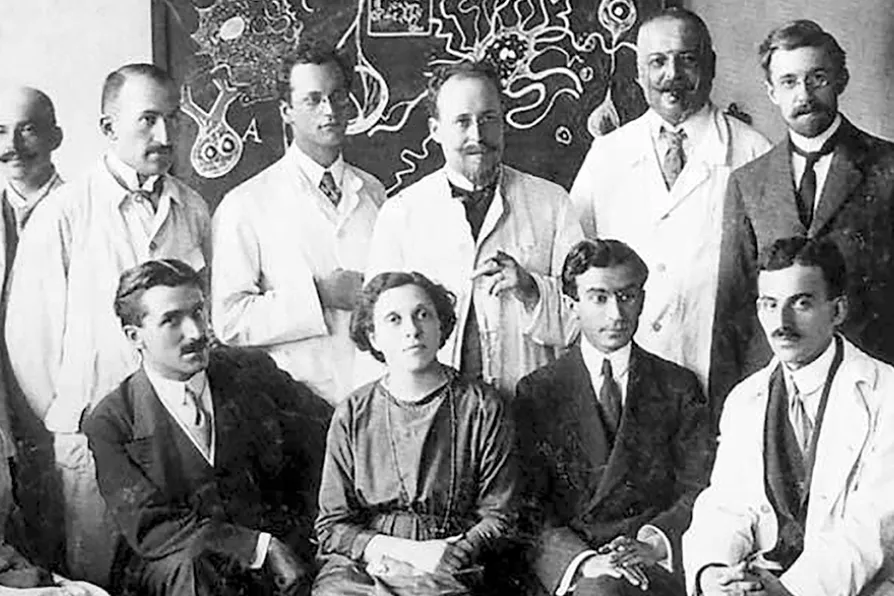As tens of thousands return to the streets for the first national Palestine march of 2026, this movement refuses to be sidelined or silenced, says PETER LEARY

 GROUP SUPREMACY: Alois Alzheimer (standing third from right) with his research group at the Nervenklinik in Munich 1909-1910
[Public domainc/CC]
GROUP SUPREMACY: Alois Alzheimer (standing third from right) with his research group at the Nervenklinik in Munich 1909-1910
[Public domainc/CC]
IN MOST cases of peer review, scientists review a paper for free while the publisher makes a huge profit margin. Two of the world’s biggest academic publishers are Springer Nature and Elsevier: their recent profit margins range from 28 to 38 per cent. The fees charged by these publishers are generally paid for by research grants; in Britain, that is mostly public money. The status quo of science is worth a lot of money — for some.
However, not everything that is peer-reviewed is valid. A recent book published this month, Charles Piller’s Doctored, covers the story of fraud in research on Alzheimer’s disease — all of which had been peer-reviewed.
One of the leading theories in the late 20th century about Alzheimer’s was that the accumulation of amyloid proteins was to blame. Amyloids, named after their resemblance to starch molecules, clump together into tangles of gunk in the brain.

Neutrinos are so abundant that 400 trillion pass through your body every second. ROX MIDDLETON, LIAM SHAW and MIRIAM GAUNTLETT explain how scientists are seeking to know more about them

What’s behind the stubborn gender gap in Stem disciplines ask ROX MIDDLETON, LIAM SHAW and MIRIAM GAUNTLETT in their column Science and Society

A maverick’s self-inflicted snake bites could unlock breakthrough treatments – but they also reveal deeper tensions between noble scientific curiosity and cold corporate callousness, write ROX MIDDLETON, LIAM SHAW and MIRIAM GAUNTLETT











